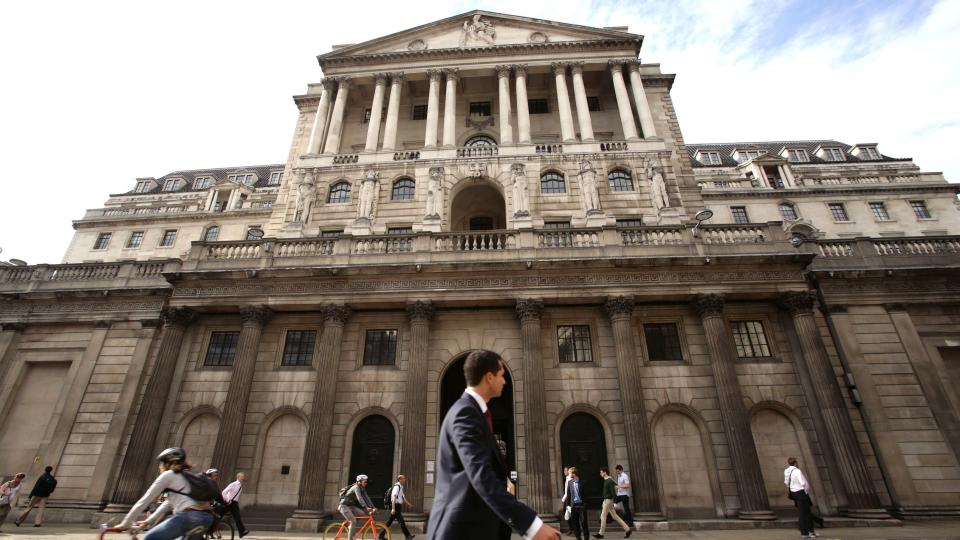Bank to hold rates steady amid no-deal Brexit fears

Bank of England policymakers are set to hold interest rates but slash economic growth forecasts on Thursday as fears of a cliff-edge Brexit mount.
The nine-strong Monetary Policy Committee (MPC) is seen unanimously keeping rates at 0.75% in its noon decision, which will be accompanied by the Bank’s quarterly inflation report and growth forecasts – its last before the October 31 Brexit deadline.
It comes as the pound has been sent tumbling to two-year lows this week on worries that new Prime Minister Boris Johnson’s hardline stance on EU negotiations is heading the UK towards a no deal.
The pound’s recent falls may see the Bank increase its inflation forecasts, as weak sterling makes it more expensive to import goods and services, pushing up prices for consumers.
It is also odds-on to cut its growth forecasts after a run of disappointing recent economic indicators pointed to a potential contraction in the UK economy between April and June.
The Bank had already trimmed its second-quarter gross domestic product (GDP) forecasts in June, predicting gross domestic product will remain flat against a previous forecast for 0.2% expansion.
But dire industry survey figures since then have signalled the economy shrank for the first time since July 2016, possibly suffering the second-steepest fall in output since the global financial crisis in April 2009.
Howard Archer, chief economic adviser at the EY Item Club, said: “This suggests that the Bank of England will need to trim its GDP growth forecast for 2019 at least.”
In the Bank’s last inflation report in May, it pencilled in growth of 1.5% in 2019, rising to 1.6% in 2020 and 2.1% in 2021.
“We suspect that the new GDP growth forecasts will not be weak enough to support the case for an interest rate cut but will fuel belief that interest rates are unlikely to rise for some considerable time to come,” Mr Archer said.
Not all economists are so gloomy, given that employment is still holding firm at record levels.
Frances Haque, Santander UK chief economist, said: “Many of the fundamentals appear to be holding strong, with increased real wage growth, inflation at target and a labour market continuing to defy expectations.
“However, with the uncertainty over the outcome of Brexit still hanging in the air and the likely poor economic growth performance of the second quarter, there is little chance the MPC will move away from the current 0.75% base rate at this time.”
Also of interest will be whether the Bank sticks to its mantra of “gradual” and “limited” rate rises needed to rein in inflation over the next three years, given the weakened global backdrop.
Some experts believe there is a chance the Bank may drop this line if it takes a particularly “dovish” view that the next move in rates is not necessarily likely to be a rise.
While this will be the last inflation report before the Brexit deadline, the Bank has also been asked by the Treasury Select Committee to provide fresh analysis on the economic impact of Brexit scenarios, including a cliff-edge withdrawal.
The Commons committee wants “up-to-date and rigorous analysis” of the current key Brexit outcomes, with the Treasury also asked to submit a report.
These are expected in September and will be eagerly anticipated, given the controversy surrounding the Bank’s last “doomsday” Brexit scenario report at the end of last year.

 Yahoo Finance
Yahoo Finance 